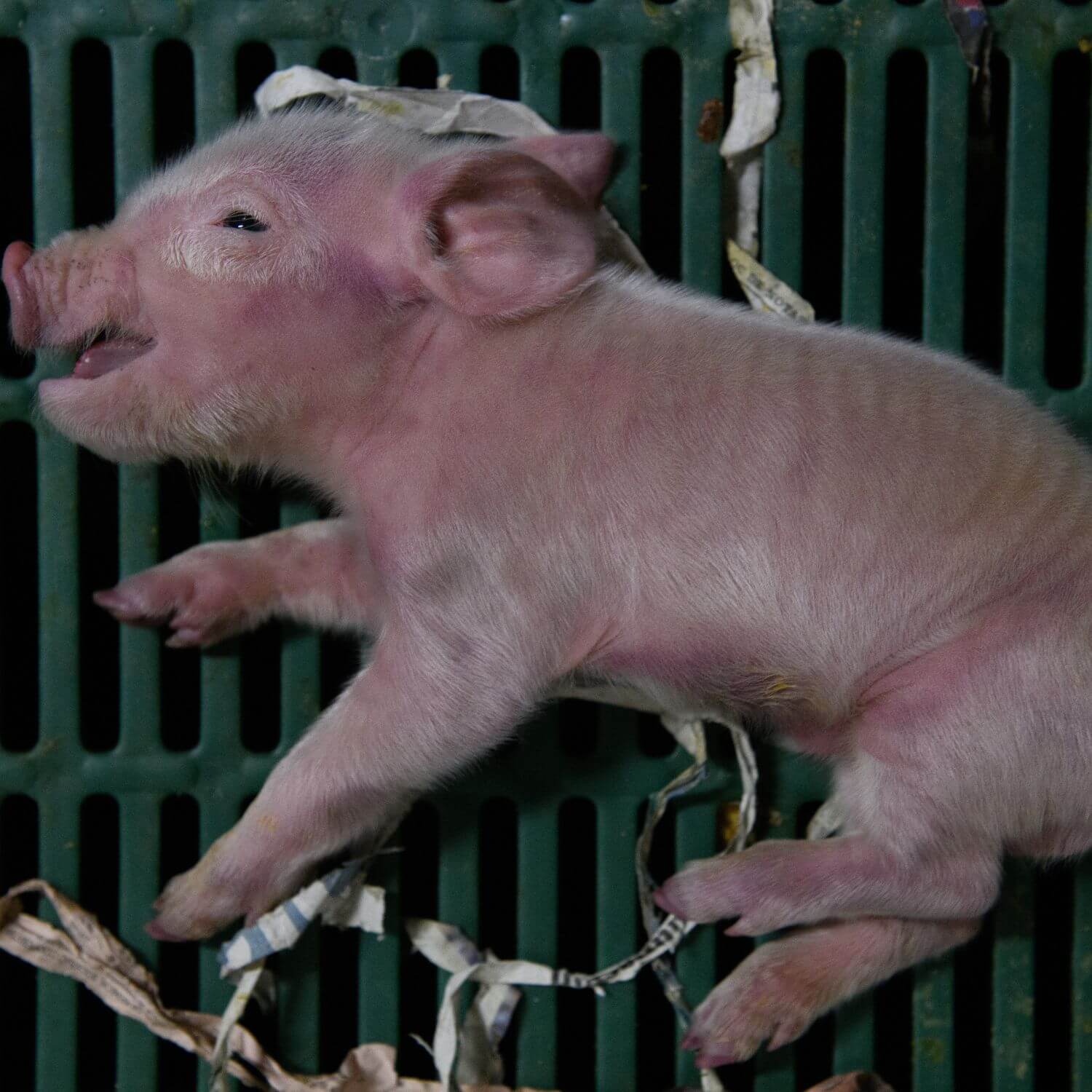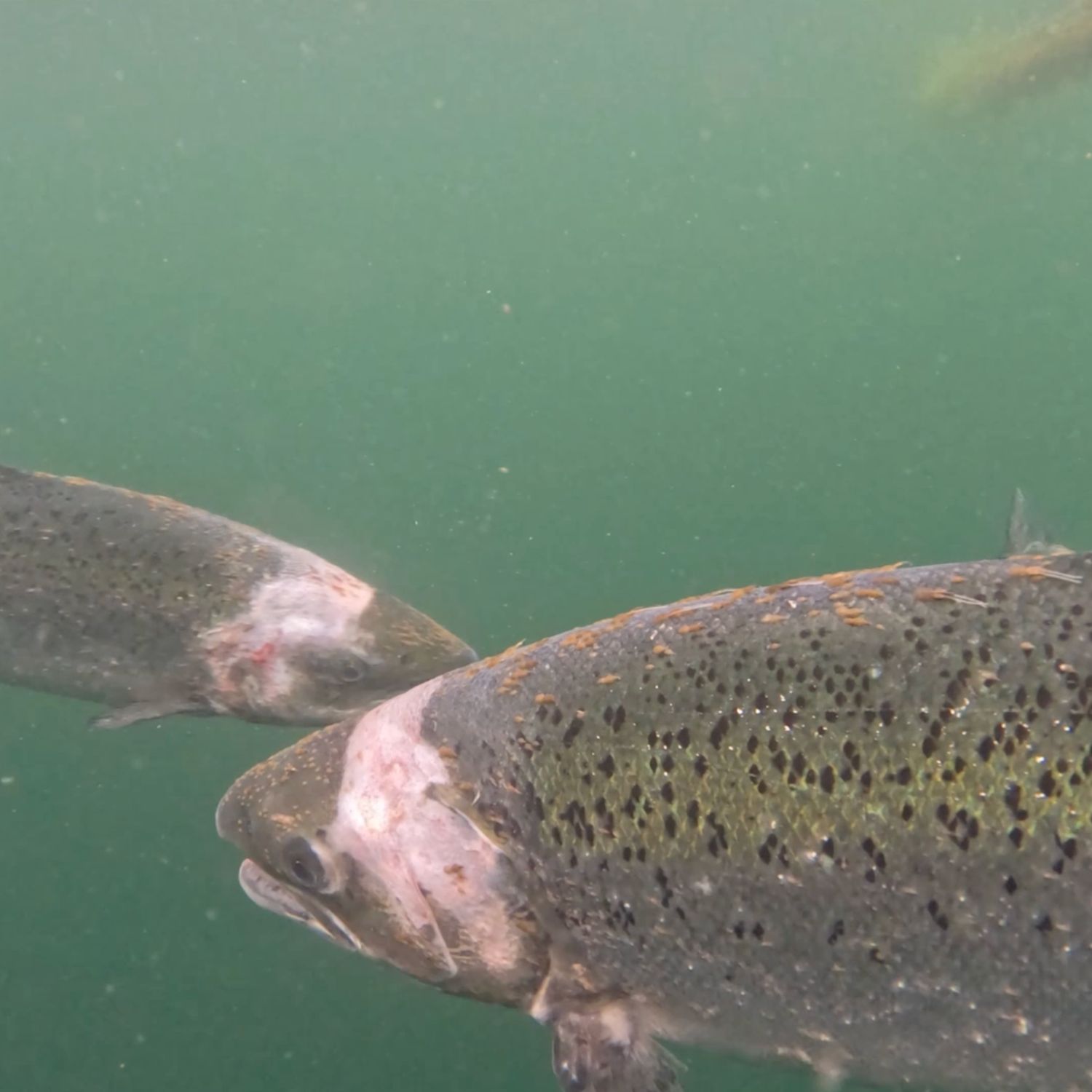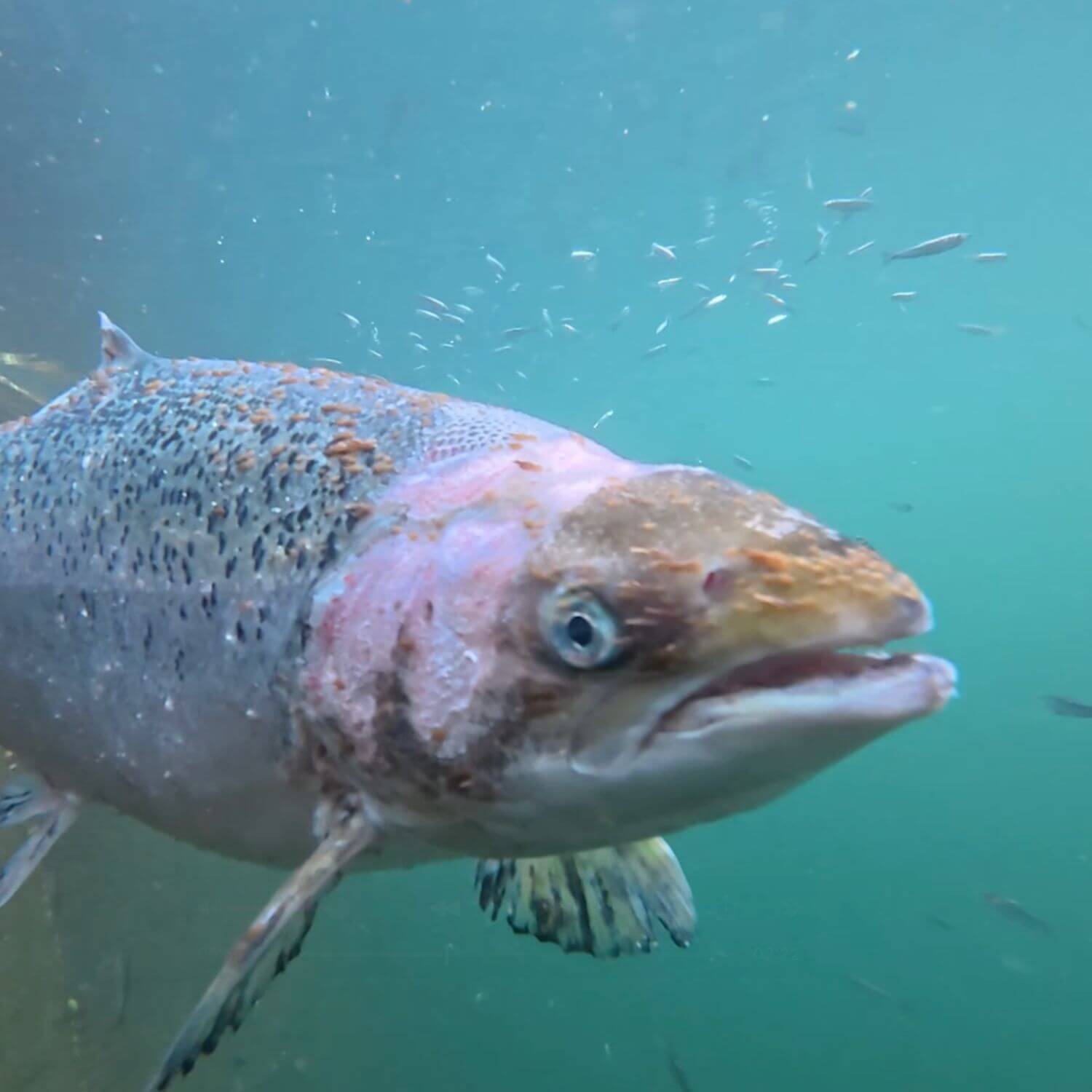Animal Equality report exposes failure of laws to protect trout
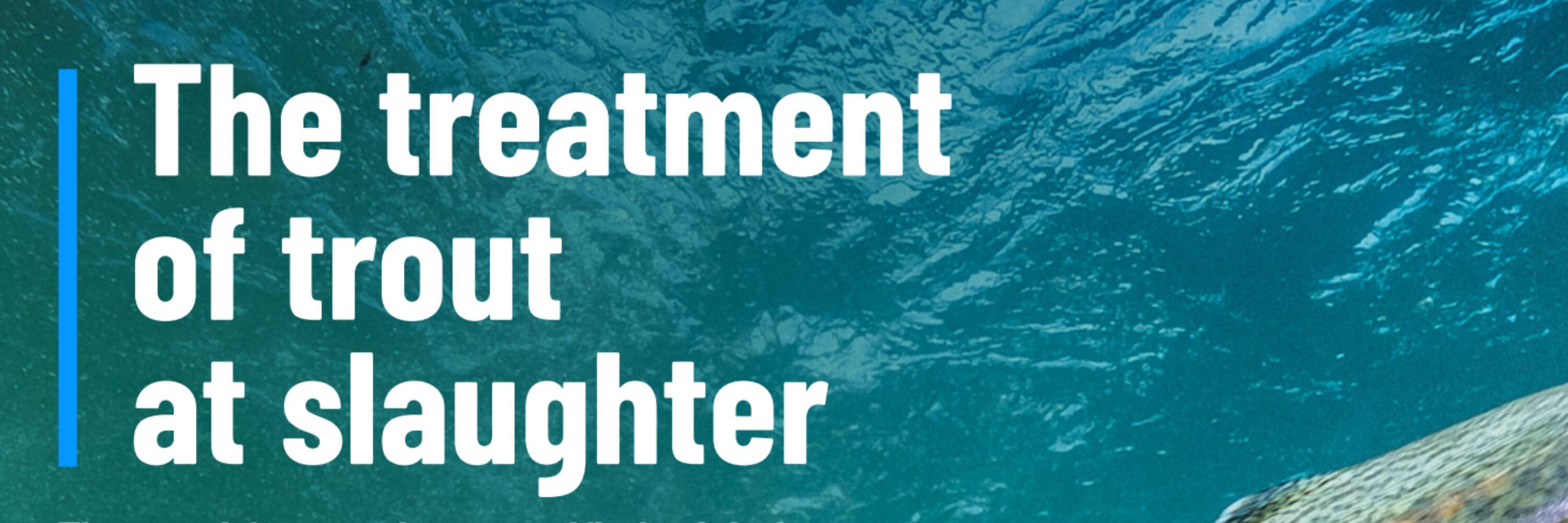
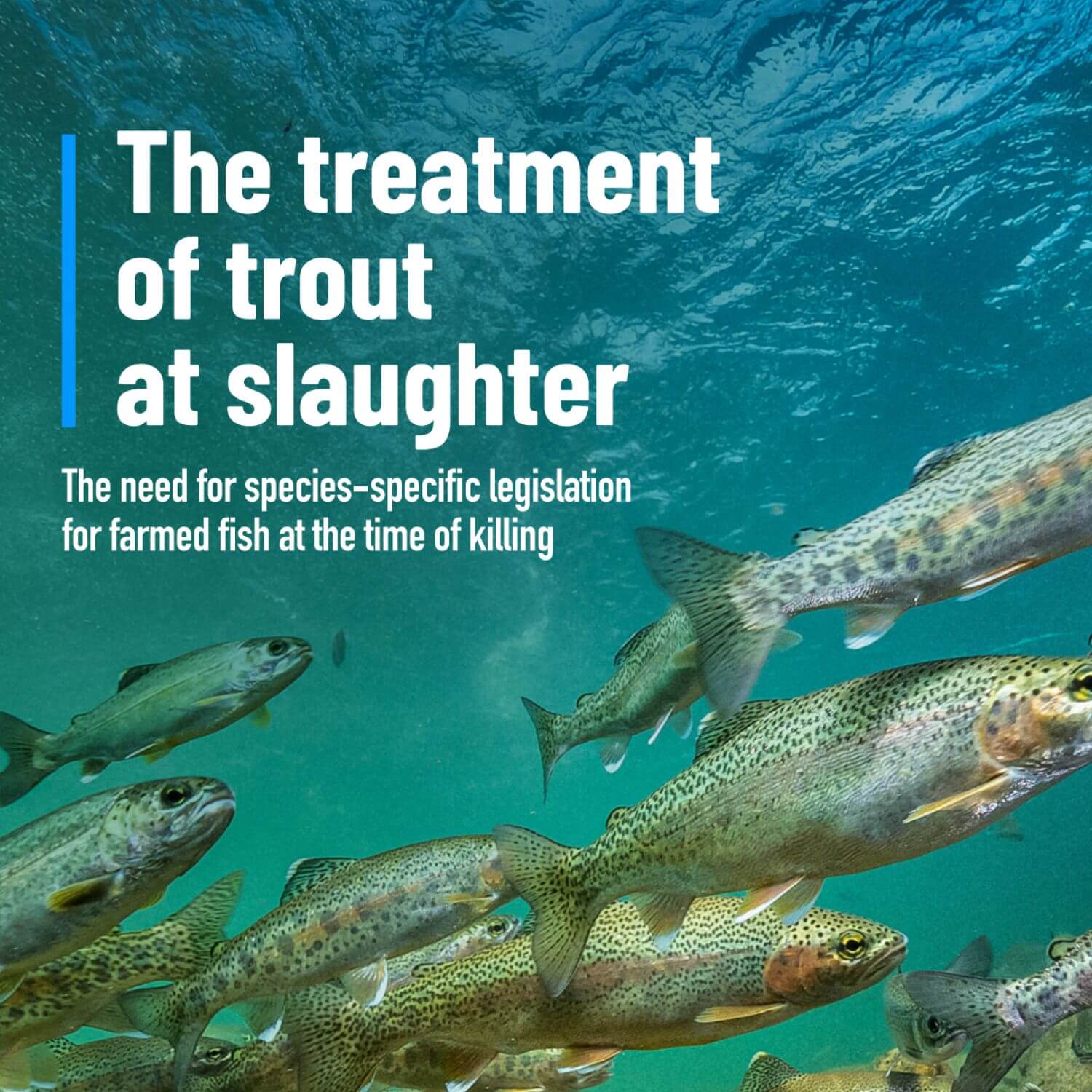
Around 77 million fish are farmed and slaughtered each year in the UK, with Rainbow Trout accounting for tens of millions of these lives.
According to the British Trout Association, nearly 290 trout farms operate across the UK, producing around 17,000 tonnes of trout annually. Aquatic expert Mark Borthwick estimates this translates to approximately 20 million individuals killed for human consumption each year.
Trout belong to the Salmonidae family, which also includes salmon, char, and grayling. These freshwater fish are distinguished by their adipose fin – a small extra fin between the dorsal and tail fins.
Trout vary in colour and pattern depending on their habitat, developing natural camouflage that shifts as they move between environments. Rainbow trout are recognised by their distinctive lateral stripe and black spots on the tail fin.
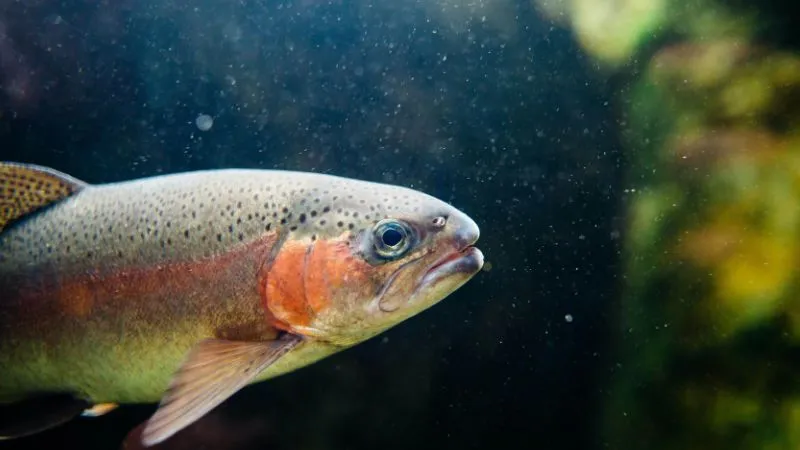
While brown trout (Salmo trutta), native to the UK, were once the primary species farmed for their flesh, today’s industry overwhelmingly focuses on Rainbow Trout (Oncorhynchus mykiss), a species imported from North America. These fish are used by the UK industry because they tolerate warmer waters, grow more quickly, and reach larger sizes.
Other trout species exploited for their flesh include the Brown Trout, Golden Trout and Blue Trout.
Trout farming began in the UK in the 1950s. Most trout are reared in confined freshwater tanks, ponds, raceways, or pens, with some kept in marine pens. The industry is concentrated in areas like central and southern Scotland, southern England, and North Yorkshire.
Trout, like all fish, are cold-blooded and acutely sensitive to their environment.
Trout farms often specialise in different parts of the production cycle. Hatcheries collect eggs from fish kept for breeding and raise them to fingerling size, at which point they are sold to other farms and grown to ‘slaughter weight’. Many farms also operate abattoirs or ‘processing units’, farm shops, or fisheries open to the public.
Fish with complex sensory systems and a recognised capacity to experience pain and distress spend their entire lives confined in overcrowded conditions that leave little room for natural behaviours.
Trout are typically slaughtered between eight months and two years of age after a lifetime of stress and deprivation in these industrial systems.
Farmed fish are given some basic protections under UK laws, but these laws lack detail. There are currently no prescriptive parameters on how farmed fish should be delivered, handled, stunned, or slaughtered. They have general protection under ‘Welfare at the Time of Killing’ regulations, as well as the Animal Welfare Act and the Animal Health and Welfare (Scotland) Act, but without detailed provisions the current law is at risk of misinterpretation leaving farmed fish especially vulnerable in their final moments of life. Animal Equality’s exposés have repeatedly evidenced fish welfare being severely compromised as a result.
Farmed land animals are afforded legal protection at slaughter that fish are not. Enforcement of the laws is inadequate – something we are fighting hard to rectify – but at least there are laws to protect those trapped in these cruel and merciless places. There is no rational reason for this legal disparity – farmed fish are thinking, feeling animals and deserving of the same too.
Footage captured covertly suggests incidents of poor welfare and abuse can go undetected in fish farms and slaughterhouses. In 2023, Animal Equality recorded trout slaughter taking place on boats operated by Dawnfresh Farming off the coast of Scotland. At the time of filming, the boat fell under the ‘R R Spink & Sons’ brand. With its royal seal of approval, R R Spink & Sons has supplied major UK supermarkets like Tesco, Sainsbury’s, and Marks & Spencer. The video footage showed schooling of fish near the surface of the water, as well as extreme crowding in pens. Smaller or juvenile fish that fell through slats were left to suffocate in an empty bucket. Slaughter machinery was not adjusted for fish of different sizes which would likely result in a mis-stun. In instances of clear failure to stun, workers struggled to hold fish in place and club them; on some occasions they held fish under ice and painfully tore the animal’s gills with their fingers.
In 2021, following an Animal Equality exposé into a farmed fish slaughterhouse showing extensive animal suffering, with salmon being cut while conscious and thrown to the ground while alive; 70 world-leading experts were so concerned that they signed an open letter to the UK Governments, calling for species-specific legislation to be enacted.
We will persist in urging the devolved UK Governments to give fish better legal protections and to make those protections count.
And remember, there is no compassionate way to farm fish. These are migratory animals who deserve to be exploring the ocean – not trapped inside artificial tanks and underwater cages. Save them from a life of suffering and a traumatic death; switch to plant-based alternatives today.
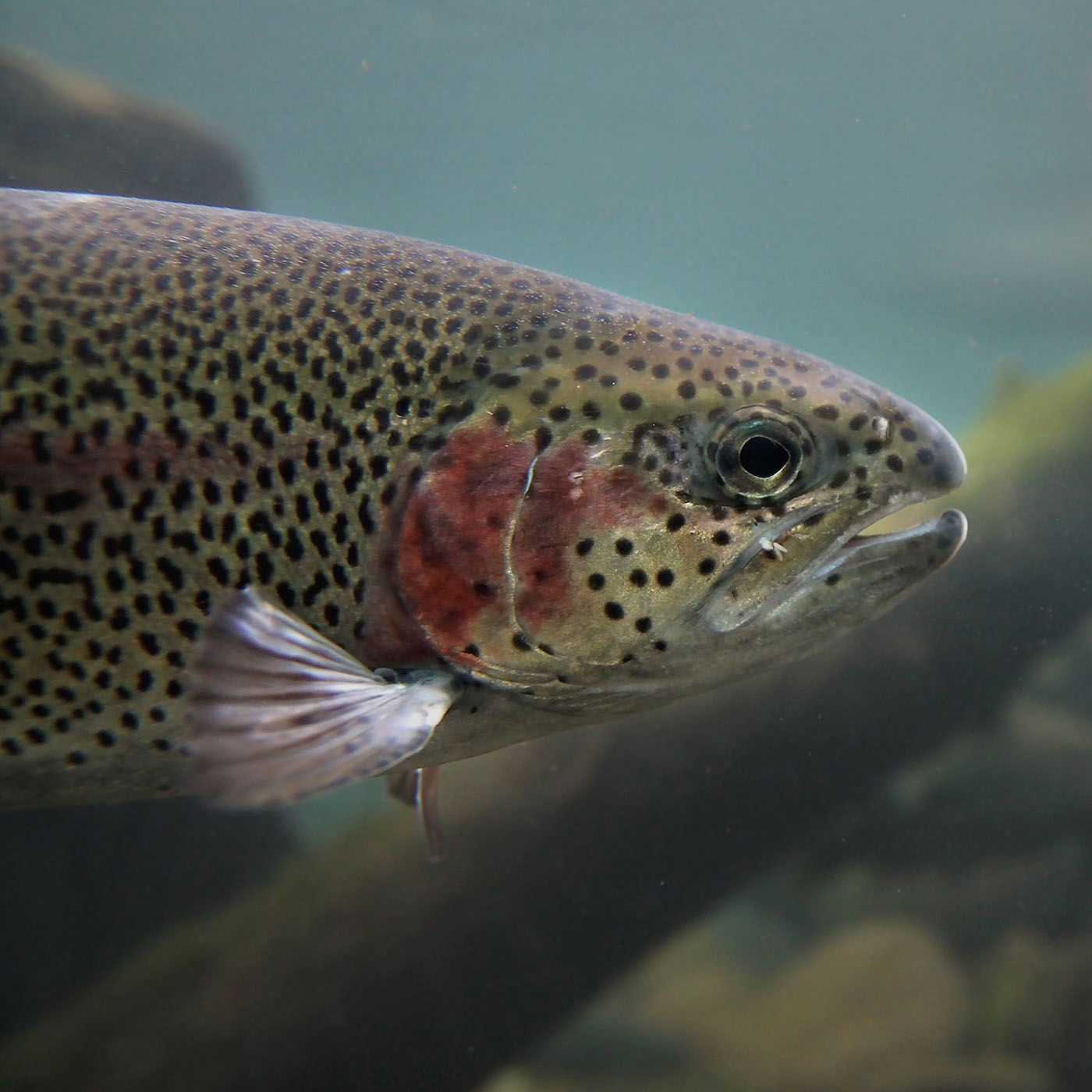
Protect Fish
Scientists confirm that fish feel pain and suffer. Protect these sensitive beings by choosing plant-based alternatives to animal food products.

